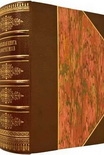Nature Noir, Jordan Smith [early reader chapter books .txt] 📗

- Author: Jordan Smith
Book online «Nature Noir, Jordan Smith [early reader chapter books .txt] 📗». Author Jordan Smith
"Woo-ahhh," he greeted the others quietly, twisting the combination padlock on his locker. There were hooahhs all around in reply. This standard salutation of American River shift changes lacked the puerile zeal of its military antecedent, as uttered by nineteen-year-old Marines. Here it had a weary, ironic sound, like a man grunting after swallowing something bitter.
"O'Leary's the only one who's turned in his career development plan," MacGaff announced to no one in particular, but good-naturedly.
"Bully for you, Ron," said Bell. "Sissy," he added, with the slightest grin. "What did you put on it, anyway?"
"The usual," answered O'Leary, buttoning up his uniform shirt. "Preserve the status quo."
"Preserve the status quo! Hooahh!" Bell chuckled. He strolled over to a large steel locker just inside the old mess hall adjoining the kitchen, where he pulled a bundle of keys from a clip on his belt, unlocked the door, and removed one of the shotguns lined up inside. "That's what I'm putting on mine," he said, laughing. "Preserve the status quo!" He worked the gun's action, clack-clack, to make sure it was empty, grabbed a handful of shells from inside the locker, and fed them expertly into the magazine.
Another pickup crunched into the yard. Sherm Jeffries, from the coal country of Pennsylvania, clomped through the door. If O'Leary didn't exactly look like a ranger, Jeffries, with his flinty eyes, rugged face, neatly trimmed black hair and mustache, and black logger boots, looked every bit the part. He was carrying a reel from a fly-fishing rod, which he set gently on the table. "Check this out, Doug," he said to Bell.
Bell walked over and picked it up.
"Nice," he said, setting it down respectfully.
"Hey, no foolin'," MacGaff continued earnestly through the interruptions. "I need those career development plans and personal performance standards. Bruce's gettin' on my case about it."
"Yeah, yeah," said Bell in mock disdain. He crossed the room with his shotgun slung casually over one shoulder and reached for a set of vehicle keys on a row of hooks by the door.
"Hey!" yelled MacGaff in mock anger as Bell went out the door.
Finch was gathering his equipment. I stood with one boot on the seat of a chair, putting on polish. Outside I heard Bell trying to start one of the old Ramchargers, their paint oxidized in the sun and eighty- or ninety thousand bolt-loosening dirt-road miles on their odometers. The big V-8 turned over reticently for a few revolutions, there were a few expiratory clicks from the solenoid, followed by a final thhhptt, and then nothing. I heard the creak of the driver's door opening, then the resonant spring-creak of the hood.
Bam! The hood was slammed violently back down.
"Fuck!" Bell's voice.
Bam! His boot hit the fender.
"I'll jump you, Doug," Finch yelled cheerfully as he shuffled out the office door with his arms full of gear.
As our senior statesman, O'Leary had been designated to show me around. That morning he took me up to Mineral Bar in one of the two newer, more reliable rigs. A production sport utility vehicle must be extensively modified for a ranger's work, and this had been done very well on the older Ramchargers, although now, in advanced age, nothing worked right. The two three-year-old GMCs had shown up just after the budget was cut and most of the staff was laid off and had been given to the senior men, MacGaff and O'Leary. The way they were outfitted was a study in resignation.
Loading my gear into O'Leary's back seat, I noticed there was no metal screen between it and the front seat for safely transporting prisoners. The roof was bare of the usual red and blue emergency lights. There were no spotlights, no alley lights, no flashlight charger inside for night work. The vehicle had no shotgun rack, no baton holders, and no radio scanner. I opened the tailgate to check the rescue equipment. There wasn't any, save for a worn fishing-tackle box containing a few gauze bandages in dusty plastic sandwich bags, a superannuated roll of adhesive tape congealed into a solid lump, some dusty bandage scissors, and a stethoscope. There was a suction bulb for removing meconium from an infant's throat at that once-in-your-career emergency childbirth, but no climbing ropes, river-rescue gear, cervical collars, or splints for the falls and boating accidents rangers see a lot of in mountain canyons.
We left the Auburn office, O'Leary driving—he was an excellent driver—and started east up the interstate toward the mountains. At the town of Colfax we left the highway and followed a single-lane road switchbacking down the wall of the North Fork canyon in the deep shade of a Douglas fir forest. At the bottom we reached the banks of the North Fork. The river coursed by us, clear, fast, and cold, its stony bottom dancing through the prisms of waves. We crossed it on a two-lane bridge. Underneath us dozens of swept-winged swallows dipped and weaved out over the rapids in pursuit of a hatch of dragonflies.
On the far side, we turned left on a dirt track through a line of boulders next to a sign that read MINERAL BAR CAMPGROUND. The campground consisted of seventeen campsites laid out along the track, about half of which were occupied by a collection of faded tents, sagging blue plastic tarpaulins, and wasted-looking old cars, pickup trucks, and vans. I couldn't see a single human being. Somewhere on the other side of a line of alders along the riverbank I heard the hum and rattle of a gold dredge.
"They must be out mining," I said helpfully to O'Leary.
"Uh-huh." He nodded noncommittally. He





Comments (0)